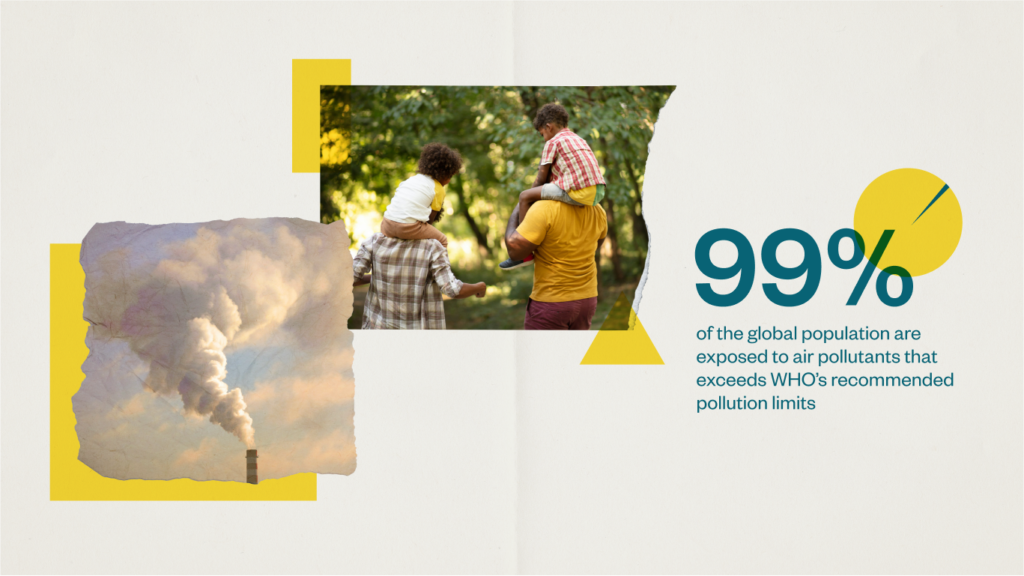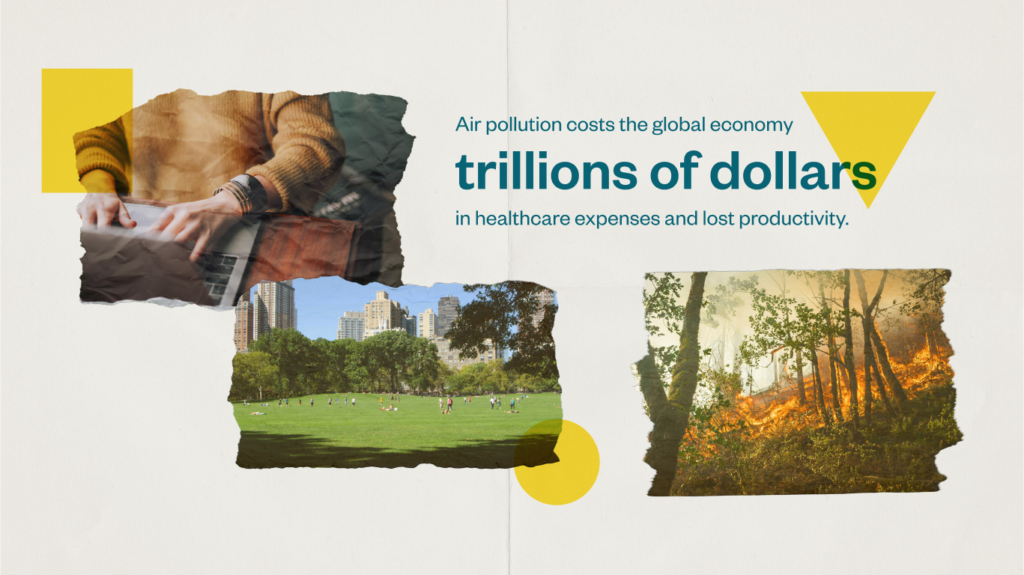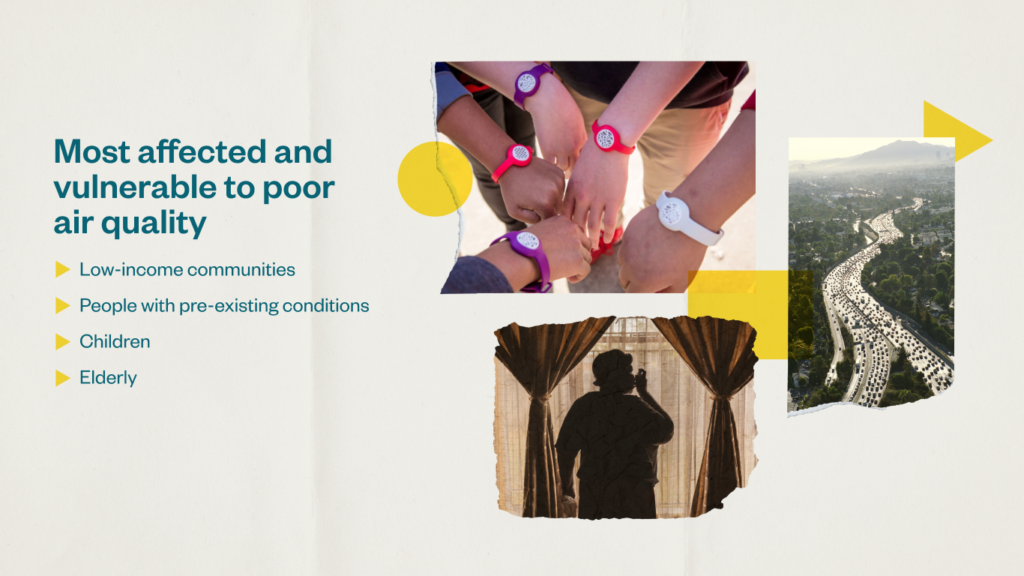Smoking has long been acknowledged to be dangerous — no parent would recommend their kids take it up if they want to live a long, healthy life. But few people realize that air pollution has now moved ahead of tobacco and poor diet as a risk of death. As technology advances and wildfires rage due to excess deforestation and increased planet temperatures, are we spending enough time thinking about how innovation like AI can be leveraged to prioritize clean air and other essential resources in our future?
Coupa and NationSwell are launching the Equal Air Collaborative to bring together leaders from across sectors to champion solutions to combat air pollution, ensuring that everyone — whatever their background, and wherever they live — has access to clean air and essential natural resources; and we are looking for other innovators to join us.
Every year, air pollution contributes to more than 10 million deaths globally. 99% of us are exposed, but some people suffer the health consequences more than others due to over-exposure or vulnerability — for example, low income communities, indigenous communities, children and older adults all experience greater pollution damage to their lungs and overall health.

Despite shifts toward more sustainable processes and electric vehicles, EPA figures show that the combined emissions from industry, electric power and transportation contribute 76% of carbon air pollution. Plus, the increase in wildfires due to excess deforestation and increased planet temperatures are creating untenable levels of smoke. This is a global issue, as air particles know no borders, and it is an issue that affects certain communities more than others: lower income families are more likely to live near highways and factories, exposing them to greater risk of illness.
We need innovation to ensure everyone has access to clean air. Coupa is an AI native, industry leading total spend management platform for businesses large and small, who have been leaning in to address the clean air emergency. In addition to their net zero carbon and SBTi validated climate reduction goals, in 2022 Coupa launched the Equal Air Project in partnership with Earth Watch, Sustainable Silicon Valley, and Yale School of Public Health. Coupa volunteers placed specialized sensors across the San Francisco Bay Area to test and monitor air quality. Yale School of Public Health monitored and analyzed data across two months to better understand local level exposures. The results proved that the quality of the air we breathe differs dramatically by zip code.

Why should businesses like Coupa address access to clean air? Because it makes business sense. Skilled, reliable talent is hard to find, but if employees breathe polluted air they are more likely to get sick and experience reduced cognitive performance. Globally, 1.2 billion workdays are lost due to air pollution, and it’s projected to reach 3.8 billion days by 2060.
As billions of dollars are pumped into AI development, we should consider how these powerful new tools can be used to solve systemic issues, some of which most people are completely unaware of — so-called hidden pollutants. Car tires, for example, are a highly dangerous pollutant that are yet to be regulated by any government.
AI and big data can help us create inventive new ways to monitor and understand the emissions that exist. For example, a Penn State-led research team used AI and mobility data to improve the accuracy of air pollution predictive models by an average of 17.5%., which allows for more targeted interventions and mitigation for vulnerable areas. This type of improved modelling could make a significant impact when used at scale in industries. Dr. Krystal Pollitt at the Yale School of Public Health has created a wristband that allows individuals to understand their exposure to environmental chemicals around them utilizing AI.

However, while AI and technology broadly can significantly increase monitoring and detection of air molecules, it can also have a negative impact on air quality if we don’t consider the full life cycle of its development: the rapid expansion of data centers and energy use are leading some to warn of an oncoming energy crisis in the US. China offers us an insight into what this means for the air we breathe — studies show that increases in electricity consumption in China are associated with decreases in the air quality index.
As AI becomes an evermore integrated presence in every aspect of our lives and particularly in the business sector, it’s essential for members of the business community to consider how their AI-powered products and services influence the air being breathed in and out every day by their employees, partners, and customers.
Equal Air Collaborative held a conversation on The Bottom Line: Collective Action for Clean Air on Wednesday, April 24th to learn more and discuss solutions for a more responsible path forward.
Wristband photos from Dr. Krystal Pollitt at the Yale School of Public Health

 "
"
